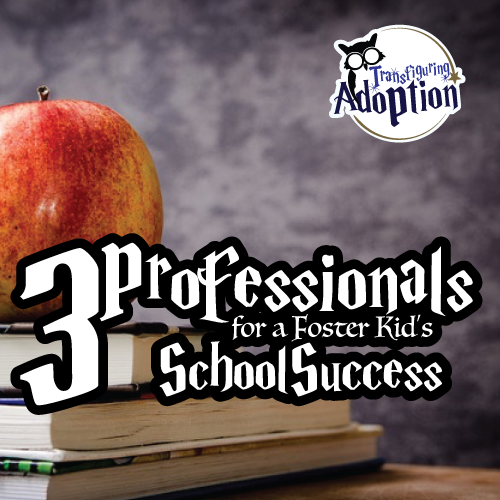The education system can be difficult to navigate for anyone. (Geez, I work in the education system and find it incredibly overwhelming at times.) Add in to the equation a foster or adopted child you are responsible for and there are many questions of where to begin. I wanted to share with you the three people you need to be in conversation with first and foremost about the school experience of your child.
- Classroom Teacher
This one may seem like a no-brainer, but your child’s classroom teacher is your first line of defense. This is the person who is spending a lot of time with your child and is aware of the many strengths, weaknesses, and behaviors related to their learning and social interactions. They see a side of your child that you may not see because of the different type of setting. They can share with you information about their work habits, how they are relating with their peers and adults, problems they may see, strengths that need to be grown, etc. This is all information that you as foster and adoptive parents need to know in order to help your child be the most successful that they can. Creating that open dialogue that I have spoken in previous blogs before will make all the difference for your child’s school experience.
* Please keep in mind that communication with your child’s classroom teacher should also happen if you have an issue with the teacher himself/herself. There may come a time that you question a teacher’s decision – talk with them first. Allow them to explain the background for their choices.

- Special Education Teacher
This is particularly important if your child has an IEP or 504 Plan. The role of the special education (SPED) teacher is to recognize the deficits your child has in their learning and work to fill in the gaps through increased support and guidance. While the classroom teacher does this as well, it can be extremely hard for them to do this with 30 students sitting in the classroom all at different levels of learning. (Imagine this for a teacher who teaches four different classes a day!) The SPED teacher has the opportunity to be more focused on the students on their caseload and recognize those areas of needed growth a little more in-depth. They are trained with proper interventions and supports that may be useful to your child’s learning, both for what is missing and what is currently being learned. If your child has an IEP or 504 Plan, the same conversations you are having with the classroom teacher also need to be happening with the special education teacher. - The School Counselor
If you suspect, or even have concern, that your child is having an issue at school (whether it be personal or with another student), contact the school counselor. This is the person who can pull your child aside to talk about what is going on and how the adults around them can help make it better. The counselor can set up an action plan with the child and check in on progress from time to time.

